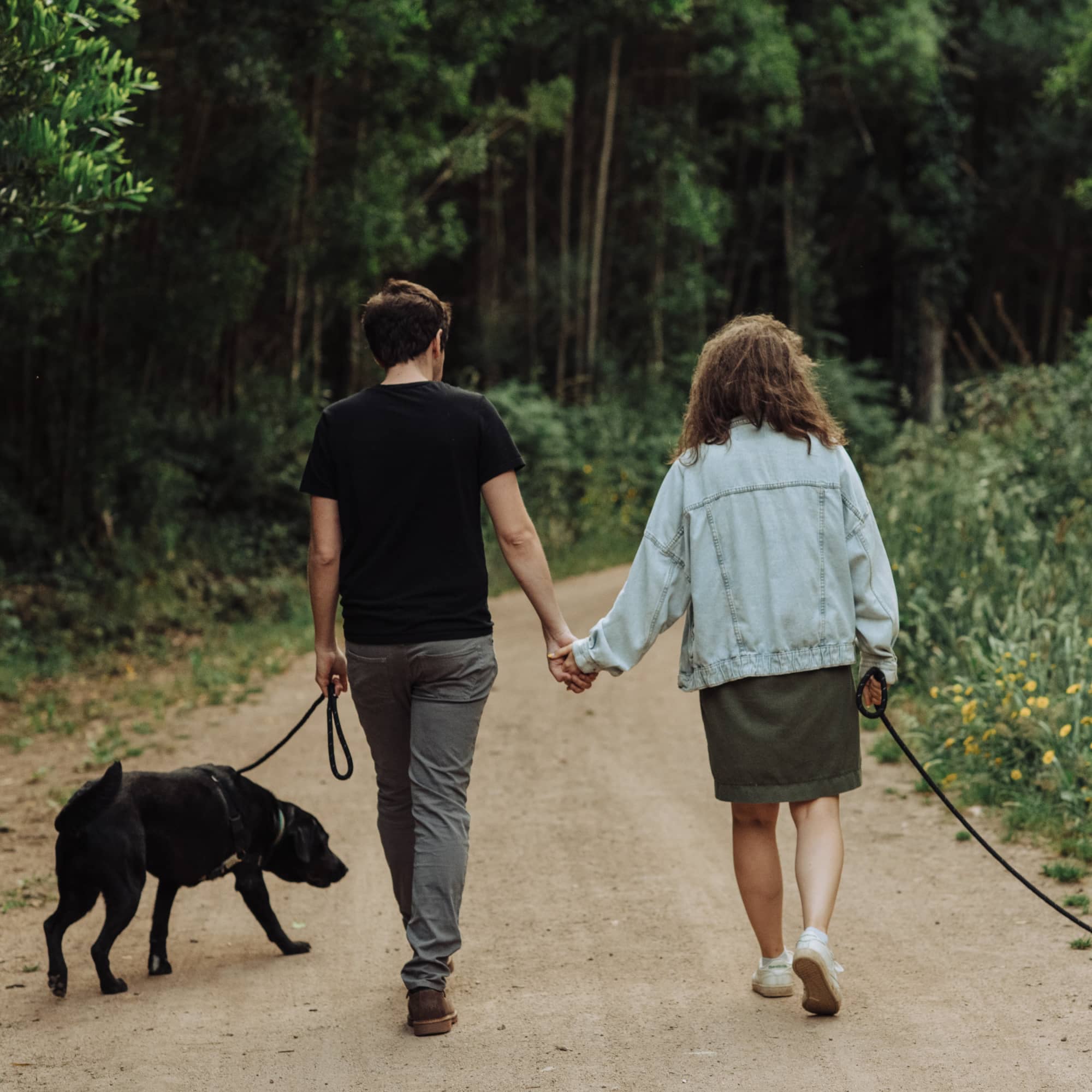
- POPSUGAR Australia
- Living
- How to Help When a Loved One Loses a Pet, According to Therapists
How to Help When a Loved One Loses a Pet, According to Therapists

It’s one thing to lose a pet of your own, but if your partner, friend, or family member loses a pet that you’ve never met, it can be hard to watch them grieve and difficult to know how to help. But just because you never met their pet doesn’t mean you can’t support them.
We all have different, and special, relationships with our pets. As Jay Lappin, clinical social worker and family therapist, said, “They are both pets and family – we celebrate their birthdays, they’re part of our rituals, and their personalities bring out sides of ourselves only seen at home.” Pets are nonjudgmental companions, which can feel like a refreshing break from the rest of the world.
“Many times, our pets are our therapists,” said Danielle Cromartie-Williams, licensed professional counselor and psychotherapist. “Our pets have grown with us and have been our main source of comfort. That shouldn’t be overlooked.” Studies have even shown that petting a dog can lower our blood pressure. That emotional connection is what makes losing them so hard, and the uniqueness of each individual pet-to-owner relationship can make supporting a bereaved pet owner difficult. Here’s how you can support a friend or partner who’s lost a pet.
Related: How to Help Your Kids Cope With the Loss of the Family Pet
- Adapt to the Owner
“Just as we humans differ in so many other ways, different pet owners will respond differently to their loss,” said Jenny TeGrotenhuis, LMHC, certified Gottman relationship therapist and writer. Because our relationships with our pets are different, our grief will look different, too. Some pet owners might need to be alone to process their grief, while others might require more care and attention. But even if somebody needs time alone, that doesn’t mean you shouldn’t reach out to them. “Your care helps them feel seen and secure as they grieve their loss,” TeGrotenhuis said. - Fill the Gap
Identify the needs that a pet might have met for someone, and step in to help, recommended TeGrotenhuis. For example, if they’ve lost a dog, they’ve also lost the daily walks and social interactions that come with getting out and exercising their pet. The routine and exercise are important needs for people, outside of just the animal, and the absence of that routine can drive home the absence of the pet even harder. By filling it and honoring that lost ritual, you’re supporting the owner’s mental health in more ways than one. - Honor the Loss
No matter how someone grieves, honoring the loss in a way that follows the pet owner’s lead is important, TeGrotenhuis said. She suggested a card, printed photo or ornament, or other memento that can show you care and honor the friendship that they lost. Cromartie-Williams suggested a picture frame or engraved keychain the owner can always have with them. TeGrotenhuis also recommended having some sort of ritual to honor the pet’s life and help bring closure.“Taking a little time to just let your friend process their loss can be the most helpful,” she said. She recommended asking about a favorite memory of the pet, what drew someone to their pet, or what the pet was like when the owner first brought them home. “These types of open-ended questions let them tell their story and process the loss.”
- Talk About It
Whatever your approach, it’s important to acknowledge that they’ve lost a friend. “The first thing that I would say is to help them normalize grieving the loss of a pet in the first place. A loss is a loss,” Angela James, licensed professional counselor said. If someone loses a pet, they may feel “guilty or weird” about the intensity of the grief they feel. This makes them more likely to minimize that grief rather than share it, which is why it’s important to give them permission to grieve as much as they need to. While confronting a pet’s death can be difficult, it can actually help create a context for grief that they can call on for coping with greater losses later in life.
As TeGrotenhuis put it, “I think it’s always appropriate to ask how someone is doing with losing a pet.” While people will vary widely on their preferences for being cared for in a time of grief, her golden rule is to “follow the lead of the one who is in need.”

